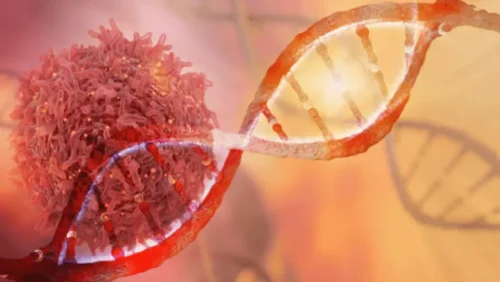
Together, these fMRI findings indicate that chronic cannabis use alters amygdala function. Addiction is a recurring cycle that worsens over time and involves neuroplastic changes in the brain reward, stress, and executive function systems (Koob and Volkow 2016). Previous neuroimaging studies reveal the long-term effects of chronic cannabis use on several different brain systems including the reward, endocannabinoid, and stress systems as well as brain areas involved in emotion processing and decision making. In one clinical study, CBD’s impact on alcohol intoxication was investigated in ten healthy volunteers, who were administered either placebo, 1 g/kg of alcohol, 200 mg of CBD, or both alcohol and CBD in a double-blind, cross-over design. Compared to placebo, the participants recieved alcohol and CBD and those consumed alcohol alone suffered significant impairments of motor and psychomotor performance and conveyed significant overestimations of time.

Treatment for Teens with CUD

Promising candidates for treatment of CUD that prevent relapse include naltrexone, gabapentin, and N-acetylcysteine (NAC) (Mason et al. 2012; Brezing and Levin 2018). With CB1R agonists as potential treatments, it is necessary to consider the abuse potential of these drugs. On the other hand, the role of CBD in alcohol, opioid and psychostimulant use disorders lies mainly in the studies carried out with different animal models, which in turn motivated the performance of several is cannabidiol addictive ongoing clinical trials. The findings included in this review suggest that CBD may reduce the consumption, motivation or relapse of alcohol, opioids (i.e., heroin, morphine) and psychostimulants (amphetamine, methamphetamine, and cocaine), as well as the withdrawal-related signs of morphine and cocaine. The clinical trials recently launched will provide relevant information to know the outcome of the translational approach to patients suffering from these addictive disorders.
© 2024 Harvard Health Publishing® of The President and Fellows of Harvard College
Legalized for medical purposes in most states, CBD has gained popularity due to its potential health benefits and minimal side effects. Research also suggests that CBD may be helpful for alleviating symptoms of anxiety. For example, one study found that cannabidiol was useful for reducing symptoms of generalized anxiety disorder (GAD), panic disorder, post-traumatic stress disorder (PTSD), and social anxiety disorder. In addition to https://ecosoberhouse.com/ mental health benefits, some research indicates that CBD might be helpful for reducing pain, relieving nausea, and treating inflammation. The World Health Organization also suggests that CBD may be helpful for treating conditions such as Alzheimer’s disease, arthritis, cardiovascular disease, and diabetes. While promising, more research is needed to understand how CBD might be utilized for the treatment of substance use disorders.
How can CBD be taken?

In contrast, higher doses (10–20 mg/kg) increased ICss thresholds, indicating that brain reward function is decreased by acute administration of CBD. ICss thresholds were lowered by morphine but increased by CBD, suggesting that CBD is unlikely to exhibit abuse potential (Katsidoni et al., 2013) (Table 1). While CBD seems to have direct effects on addictive behaviors, its therapeutic potential could also be enhanced by several properties that contribute indirectly to addictive disorders. For example, its antianxiety properties are well known at doses of 300–600 mg12,37 and CBD seems to have antidepressant11 and anticonvulsant38,39 effects. Its impact on pain has been investigated, especially in combination with THC in Sativex treatment for chronic pain40,41 and is relevant since chronic pain can induce or perpetuate drug abuse. The protective effects of CBD alone on THC-induced impairments were extensively explored in preclinical and clinical studies.
- On the other hand, the antagonism of CB2R by the administration of AM630 completely blocked the reduction of cocaine SA by CBD, suggesting its critical involvement in CBD-mediated effects (Galaj et al., 2020).
- Research also suggests that marijuana can alter brain development and may lead to cognitive impairment.
- TMK, DGS, and LHP performed tissue extraction and LC-MS assays of CBD brain levels.
- Examples of nonprescription controlled substances include methylenedioxymethamphetamine (MDMA) and heroin.
- Health professionals do not consider CBD a cure-all for serious medical issues, including cancer.
Forms of CBD and THC

While CBD is being studied as a treatment for a wide range of conditions, including Parkinson’s disease, schizophrenia, diabetes, multiple sclerosis and anxiety, research supporting the drug’s benefits is still limited. Some evidence suggests that CBD may actually be helpful for treating drug addiction and addictive behaviors. For example, while the research is still scarce and preliminary, studies have found that CBD shows promise in the treatment of cocaine and methamphetamine addiction. However, studies suggest that CBD is an effective treatment for rare, severe forms of childhood epilepsy.
How is cannabidiol different from marijuana, cannabis, and hemp?
Its potential impact on mental health conditions such as anxiety and depression has been a specific point of interest for many. Substances that lead to dependence and addiction affect the pleasure centers of the brain, often making it so that people need to consume a substance to avoid experiencing symptoms of withdrawal. In many cases, people may also need to use more and more of a drug in order to continue experiencing the same euphoric effects that they initially felt. In fact, some evidence indicates it may have some benefits for helping to treat addiction. However, CBD products often contain more THC than the label suggests—and THC is addictive. Cannabidiol is generally considered safe, but it is essential to be aware of the potential effects, risks, and side effects you may encounter.